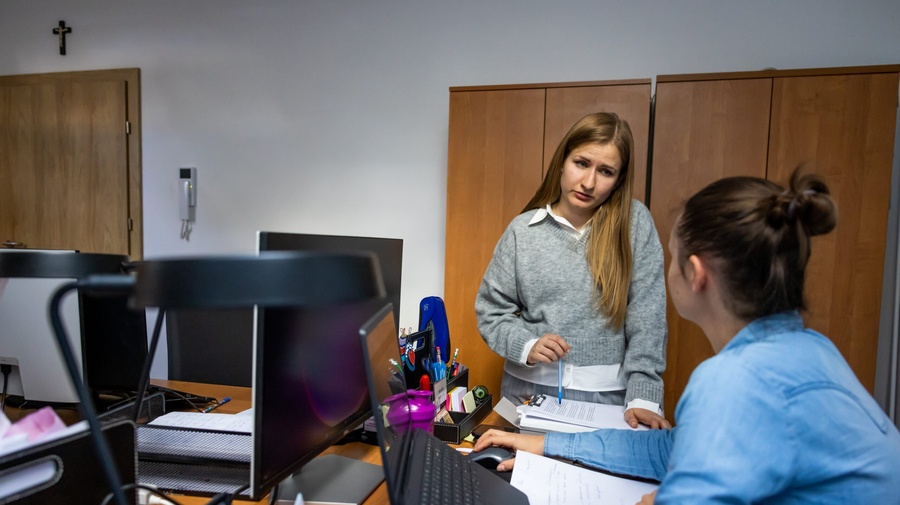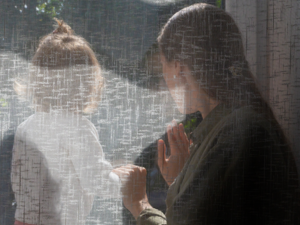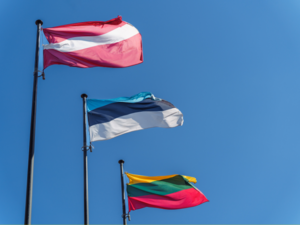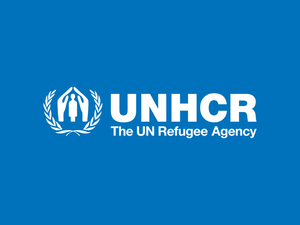Lithuania's Support for Ukrainian Refugees Yields Positive Results, but Gaps Remain, UNHCR Survey Finds
Lithuania's Support for Ukrainian Refugees Yields Positive Results, but Gaps Remain, UNHCR Survey Finds

The survey highlights significant strides in language learning, employment, and social inclusion for Ukrainian refugees in Estonia, while also underscoring the ongoing need for economic support. © UNHCR/Anna Liminowicz
The 2024 Socio-Economic Insights Survey (SEIS), conducted under the Regional Refugee Response Plan for the Ukraine Situation, provides an in-depth analysis of the socio-economic conditions of Ukrainian refugees in Lithuania. The survey, covering 638 refugee households (1,445 individuals), underscores both positive integration trends and persistent challenges that require targeted support.
"We are grateful for Lithuania's generous reception of refugees from Ukraine but highlight some current needs to be addressed for better inclusion and integration and provide our recommendations, which are part of the report”, says Renata Kules, UNHCR’s Government Liaison Officer for Lithuania.
Since the onset of the conflict in Ukraine, Lithuania has demonstrated remarkable solidarity, providing safety, stability, and opportunities for Ukrainian refugees to rebuild their lives; while many refugees are thriving, the SEIS survey reveals that significant gaps remain for those with heightened vulnerabilities or specific needs.
- Positive Integration Trends: The majority of refugees in Lithuania are satisfied with their living conditions and have their basic needs met. Nearly 85% of respondents feel confident and safe in their surroundings, with satisfaction levels rising by 7% from 2023.
- Education Access: 83% of school-aged children are enrolled in school, though enrolment rates drop for teenagers (70%) and university-aged students (37%), highlighting the need for improved educational access for older students.
- Employment and Livelihoods: While 53% of working-age refugees are employed, 10% are unemployed, and 37% are outside the labor force. Encouragingly, 85% of those employed have formal work contracts.
- Language Barriers: Only 25% of refugees report speaking Lithuanian well enough for daily conversation, though 41% have attended language courses, with nearly three-quarters expressing satisfaction with the instruction. Encouragingly, two-thirds of those with poor or no understanding of Lithuanian are willing to learn.
- Healthcare Access: One in three refugees required medical attention in the past month, yet 17% of those in need could not access care due to barriers such as lack of health insurance (35%), financial constraints (19%), and long waiting times (18%).
- Economic Challenges: Nearly 14% of refugee households struggle to afford basic food, while 39% report incomes that only cover basic food but not utility bills or medical expenses. Among new arrivals, 30% reported difficulty affording food.
- Living Conditions: Approximately 63% of refugee households live in private apartments or houses, with 13% still residing in collective sites, primarily in rural areas. Encouragingly, 70% of households now cover their own accommodation costs.
- Social Relations and Hostility: 72% of refugees describe their relationship with local communities as positive, though 28% reported experiencing hostility, with verbal aggression (55%) and discriminatory behavior (55%) being the most common.
- Mental Health Concerns: Women are more likely to report emotional distress affecting daily life (32%) compared to men (18%).
Key Takeaways and Recommendations: Despite Lithuania's strong support for refugees, certain areas require urgent attention:
- Enhanced Employment Support: Expanding job-matching services, vocational training, and language learning will improve employment rates and self-reliance among refugees.
- Strengthening Healthcare Access: Ensuring that refugees have access to affordable healthcare services, especially for those without health insurance, is crucial.
- Education Inclusion Efforts: Greater focus on boosting enrolment rates for teenagers and young adults in higher education is needed, along with support for language learning to improve integration.
- Community Engagement Initiatives: Promoting mentorship programs, social activities, and intercultural dialogue can help foster positive relations between refugees and host communities, especially in urban areas where hostility is more common.
- Targeted Housing Support: Special attention should be given to newly arrived refugees and those with specific needs who struggle to secure stable housing.
Despite Lithuania's substantial strides in supporting refugees, targeted interventions are still required in key areas such as employment, healthcare access, education for older students, and social integration. Enhancing language learning opportunities, expanding vocational training, and strengthening community-based support systems will be crucial for improving outcomes for both refugees and host communities.
The full report is available on UNHCR’s Data Portal.









